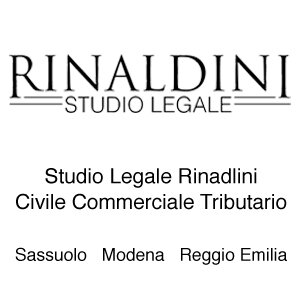Best Admiralty & Maritime Lawyers in Sassuolo
Share your needs with us, get contacted by law firms.
Free. Takes 2 min.
List of the best lawyers in Sassuolo, Italy
About Admiralty & Maritime Law in Sassuolo, Italy
Admiralty and maritime law covers legal issues related to navigation, shipping, marine commerce, vessels, crew, passengers, and marine pollution. Sassuolo is an inland town in Emilia-Romagna, so most maritime matters that affect residents or local businesses will involve nearby ports, inland waterways, coastal authorities, or national and international rules. If you import or export goods, own or operate a pleasure craft, work at sea or on inland navigable waterways, or are involved in a maritime accident or pollution incident, admiralty and maritime law may apply to you.
Why You May Need a Lawyer
Maritime disputes and emergencies often require specialized legal help because they can involve multiple legal systems, time-sensitive remedies, and technical regulatory frameworks. Common situations where you may need a maritime lawyer include:
- Cargo loss or damage during sea carriage or multimodal transport.
- Collisions, groundings or accidents involving pleasure boats and commercial vessels near regional ports.
- Crew injuries, wage disputes, repatriation, or claims under seafarers laws and international conventions.
- Pollution incidents, oil or chemical spills, and liability for cleanup and fines.
- Contract negotiations and disputes for shipbuilding, yacht purchase, charterparty, or port services.
- Arrest of a vessel or enforcement of maritime liens and mortgages.
- Insurance claims and disputes with hull, P&I or cargo insurers.
- Customs, import-export formalities, and enforcement by port authorities.
- Regulatory compliance with safety, navigation and environmental rules.
Local Laws Overview
Italy regulates maritime activity through national legislation, EU rules and international conventions. Key legal sources you are likely to encounter include:
- Codice della Navigazione - the Italian Navigation Code, which sets out rules on navigation, vessel registration, maritime contracts, liability and administrative procedures.
- National implementation of international conventions such as MARPOL for pollution prevention, the Maritime Labour Convention for seafarers conditions, and carriage conventions that govern loss or damage to cargo.
- EU rules on ports, state aid, port services and port-state control standards that apply in Italian ports.
- Administrative authority of Capitanerie di Porto - Guardia Costiera and Autorità di Sistema Portuale, which enforce safety, navigation, environmental and port regulations.
- Criminal and civil law provisions for offences at sea, environmental crimes and negligence leading to personal injury or property damage.
Because Sassuolo is inland, procedural and enforcement actions often take place in courts and administrative offices in nearby port cities. Jurisdiction, applicable law and the competent court depend on factors such as the place of the incident, the vessel flag, contractual clauses and international treaties.
Frequently Asked Questions
What should I do first after a maritime accident or collision?
Prioritize safety and emergency procedures, notify the relevant authorities such as the local Capitaneria di Porto or port control, preserve evidence like photographs and witness details, and inform your insurer. Contact a maritime lawyer as soon as possible to protect rights and consider urgent remedies such as vessel arrest or injunctions.
Can I bring a maritime claim from Sassuolo or do I have to go to the port authority?
Your claim will usually be brought before the competent civil or administrative court or maritime authority that has jurisdiction. Many maritime disputes are heard in courts located in nearby port cities. A lawyer can advise where to file based on the nature of the claim, contractual clauses and jurisdictional rules.
How do vessel arrests and maritime liens work in Italy?
Maritime arrests and liens are traditional remedies to secure maritime claims such as unpaid repairs, salvage, or cargo claims. In Italy, courts in port jurisdictions can order arrest of a vessel or other measures. Procedures and requirements are technical and time-sensitive, so prompt legal advice is essential.
What documents should I gather if I plan to pursue a cargo claim?
Collect the bill of lading, charterparty or transport contract, delivery receipts, inspection reports, photographs, communications with carriers, insurance policies, and any customs or shipping documents. These documents form the core of a cargo claim and will help your lawyer assess liability and applicable law.
Do international conventions apply to maritime disputes in Italy?
Yes. Italy applies and enforces various international maritime conventions and EU regulations. Conventions such as MARPOL, the Maritime Labour Convention and carriage of goods conventions may affect liability, compensation and procedural aspects of claims.
How long do I have to bring a maritime claim in Italy?
Limitation and prescription periods vary by claim type, contract terms and applicable conventions. Some maritime claims have short time limits for bringing actions or lodging notice with a carrier or insurer. Consult a lawyer promptly to avoid losing rights due to statute of limitations.
Can I use arbitration or mediation instead of going to court?
Yes. Many commercial shipping contracts include arbitration clauses to resolve disputes outside of national courts. Mediation and alternative dispute resolution may also be available and can be faster and more cost-effective. A lawyer can advise whether arbitration is appropriate and help enforce arbitral awards.
What if I am injured while working on a ship or offshore?
Seafarers and maritime workers have specific protections under national law and international instruments. You may be entitled to medical care, repatriation, wage claims, compensation for injury or death, and pension benefits. Legal advice is important to navigate maritime labour rules and to claim against employers or insurers.
Who enforces environmental and pollution rules in Italian waters?
Enforcement is led by Capitaneria di Porto - Guardia Costiera, regional environmental authorities and the Autorità di Sistema Portuale, together with national ministries and prosecutors for criminal offences. Penalties can include administrative fines, civil liability for cleanup and criminal charges in severe cases.
How do I find a lawyer experienced in admiralty and maritime law near Sassuolo?
Look for lawyers or law firms that list maritime or admiralty practice, have experience with the relevant ports and courts, and who speak the languages you need. You can contact the Consiglio Nazionale Forense or local bar associations for referrals, and ask potential lawyers about past cases, fees and approach to handling maritime claims.
Additional Resources
When you need authoritative guidance or to report incidents, these organizations and institutions are commonly relevant in Italy:
- Capitaneria di Porto - Guardia Costiera
- Autorità di Sistema Portuale for the relevant port where the incident is connected
- Ministero delle Infrastrutture e della Mobilità Sostenibili
- Agenzia delle Dogane e dei Monopoli for customs and import-export matters
- Consiglio Nazionale Forense and local Ordine degli Avvocati for lawyer referrals and professional oversight
- Chambers of Commerce in Emilia-Romagna and in nearby port cities for business and trade assistance
- Italian maritime insurers and P&I clubs for coverage and claims support
- Regional environmental protection agencies and local prosecutor offices for pollution incidents
Next Steps
If you need legal assistance for a maritime matter connected to Sassuolo, follow these practical steps:
- Preserve evidence immediately: take photos, keep documents, record witness names and contact information.
- Notify your insurer and any relevant authorities as required by law or contract.
- Contact a lawyer who specialises in admiralty and maritime law and who is familiar with the Italian system and the relevant port jurisdictions.
- Prepare for your initial meeting by gathering contracts, bills of lading, correspondence, inspection reports and any insurance policies.
- Ask your lawyer about jurisdiction, time limits, likely remedies and interim measures such as vessel arrest or injunctions.
- Discuss fees and representation arrangements up front, including whether contingency, hourly or fixed-fee arrangements are available.
- Consider alternative dispute resolution if suitable for your contract and objectives.
Acting quickly and with specialised advice improves the chance of a favourable outcome, limits exposure to losses or fines, and helps protect commercial and personal interests in complex maritime matters.
Lawzana helps you find the best lawyers and law firms in Sassuolo through a curated and pre-screened list of qualified legal professionals. Our platform offers rankings and detailed profiles of attorneys and law firms, allowing you to compare based on practice areas, including Admiralty & Maritime, experience, and client feedback.
Each profile includes a description of the firm's areas of practice, client reviews, team members and partners, year of establishment, spoken languages, office locations, contact information, social media presence, and any published articles or resources. Most firms on our platform speak English and are experienced in both local and international legal matters.
Get a quote from top-rated law firms in Sassuolo, Italy — quickly, securely, and without unnecessary hassle.
Disclaimer:
The information provided on this page is for general informational purposes only and does not constitute legal advice. While we strive to ensure the accuracy and relevance of the content, legal information may change over time, and interpretations of the law can vary. You should always consult with a qualified legal professional for advice specific to your situation.
We disclaim all liability for actions taken or not taken based on the content of this page. If you believe any information is incorrect or outdated, please contact us, and we will review and update it where appropriate.









